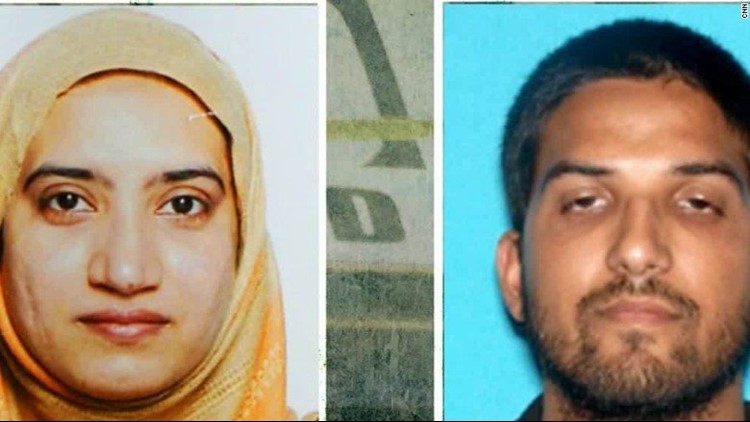NEW YORK — Edward Snowden — the ex-NSA contractor who started this whole privacy debate — has joined the ranks of Apple defenders.
On Tuesday, a federal judge ruled that Apple must help the FBI break into the phone of one of the San Bernardino shooters. The FBI was unable to figure out the shooter’s passcode, which is the only way to get inside his iPhone.
Apple CEO Tim Cook is furious, saying that the government is trying to undermine the security of its flagship product.
“The government is asking Apple to hack our own users and undermine decades of security advancements that protect our customers,” Cook said.
On Wednesday, the divide was clear: politicians versus engineers.
“The FBI is creating a world where citizens rely on Apple to defend their rights, rather than the other way around,” Snowden said Wednesday morning on Twitter.
For years, the FBI has demanded special access into smartphones. Tech companies have refused, instead increasing the security of their customers’ data.
Cryptographers, the scholars who build security into technology, have unanimously warned that special access is a dangerous idea. To them, this isn’t about security competing with privacy. It’s just about security.
Tech companies, like Apple and Google, have security on their devices to keep everyone out: hackers, governments, even the companies themselves.
But if they’re forced to open a door for police, criminal hackers and government thugs can get in too.
This battle over data encryption has finally reached a peak.
The San Bernardino shooter, Syed Farook, used an iPhone 5C. The FBI has been trying to guess his passcode to unlock it. If they guess wrong 10 times, Farook’s iPhone will permanently erase all the data stored inside.
Apple doesn’t hold the keys to his device. But the FBI wants Apple to create a special version of its iOS software that will get loaded onto the phone, circumvent Apple’s security features and let agents hack it.
Dan Guido, who runs the cybersecurity firm Trail of Bits, explained in a blog post Wednesday that this hack is possible. He said it would work on any iPhone 5C or older model, putting them “at risk when they’re confiscated by law enforcement around the world.”
Last year, the world’s top cryptographers issued a joint paper saying this is a bad idea. CNNMoney asked them if this particular San Bernardino case changes their mind. All seven who responded said no.
Matthew Green, who teaches cryptography and computer security at Johns Hopkins University, fears it’s a slippery slope. If Apple complies with the government this time, it’ll be forced to in the future.
“I haven’t seen any guiding principle that would prevent this from getting out of hand. It could easily result in every American becoming less secure,” he said.
Columbia University computer science professor Steven M. Bellovin said that if Apple doesn’t resist the FBI, it’ll soon face the same pressure from authoritarian and repressive governments like China.
“This makes it much easier for others — other police departments, other governments — to demand the same thing,” he said.
Bruce Schneier, one of the world’s top cryptographers, warned that criminals could also use this kind of special access to break into people’s phones to steal messages, photographs and other personal information. If Apple creates a weaker version of its operating system, others will get their hands on it.
“If the court wins, we all lose,” Schneier told CNN. “Today’s government access is tomorrow’s PhD thesis and the next hacker tools. In the future, criminals will be using this.”
Technology policy think tank TechFreedom warned: “The FBI is trying to hit the ultimate reset button on privacy.”
Even those who support the FBI’s demands say it’s a point of no return. Cyrus Walker teaches at the government-funded Cyber Defense Analysis Center, where he trains federal agents and police how to hack smartphones in criminal cases.
“If Apple demonstrates the ability to get around its own security countermeasures, that bell is rung and can’t be unrung,” said Walker.
The ex-wife of a deceased victim of the shootings also believes that setting this precedent could put all iPhone users’ rights in jeopardy.
Karen Fagan, the ex-wife of Henry “Hal” Bowman, says that creating technology allowing law enforcement officials to circumvent the privacy of iPhones is not the same as Apple providing the data that the company has in its possession.
Another person connected to the incident believes that Apple should work with the FBI.
James Godoy, whose wife, Aurora Godoy, died in the massacre says that Apple should assist the FBI in hacking the phone of shooter Syed Rizwan Farook.
“The government taps into stuff as it is,” Godoy told Press-Enterprise. “Why can’t they do it with Apple?”



